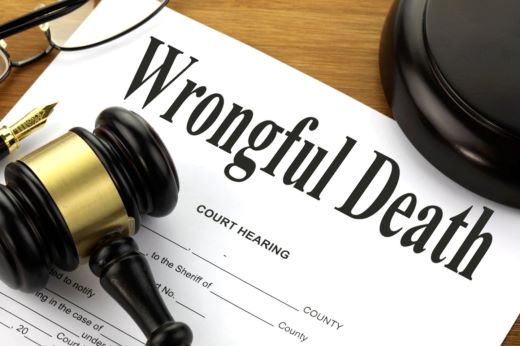Wrongful Death Lawsuits: Eligibility, Damages, Statute of Limitations, and More

Losing a loved one is a heartbreaking experience, especially when their death could have been prevented. In such cases, the surviving family members may have the right to sue for wrongful death. This legal action seeks to hold the guilty party accountable and look for compensation for the damages caused by the loss.
Understanding the eligibility criteria, damages available, the statute of limitations, and other aspects of wrongful death lawsuits is crucial for those thinking of legal action. This article will explore these key aspects to help families navigate this challenging process and get justice for their loved ones.
Eligibility for Filing a Wrongful Death Lawsuit
Generally, immediate family members, like spouses, children, and parents of the deceased, have the right to sue for wrongful death.
In some cases, other dependents or beneficiaries may also have the right to file the case. However, the specific eligibility criteria can vary by state, so it’s vital to consult with an attorney to determine your eligibility.
Types of Damages Present in Wrongful Death Cases
In a wrongful death lawsuit, damages are intended to compensate the living family members for their losses. These damages include
- Medical bills
- Funeral and burial expenses
- Lost income/wages and benefits
- Loss of companionship and support
Punitive damages, which are awarded to punish the defendant for their wrongful actions, may also be available in some cases.
Statute of Limitations for Wrongful Death Lawsuits
The statute of limitations is the time limit within which a lawsuit must be filed. This time limit differs by state and can range from one to three years or more from the date of death. It’s important to file the lawsuit within the statute of limitations because failing to do so can result in the case being dismissed.
Proving Wrongful Death and Liability
To win in a wrongful death case, the plaintiff must demonstrate, using relevant proof, that the death was a result of the defendant’s negligence or wrongful act. This typically requires demonstrating that the accused broke that duty and that the breach directly ended in death. Evidence such as medical records or documents, witness statements, and expert testimonials may be used to establish liability.
Who Can File a Wrongful Death Lawsuit?
As mentioned earlier, immediate family members such as spouses, children, and parents of the deceased are essentially eligible to file a wrongful death lawsuit. However, the specific rules concerning who can file can vary by state. In some cases, a personal or close representative of the deceased’s estate may also be able to file a lawsuit on behalf of the family members.
Common Causes of Wrongful Death
Wrongful death can happen in different instances, including car accidents, medical malpractice, workplace accidents, and defective products.
Comprehending the common causes of wrongful death can help families identify whether they have grounds for a case and seek the compensation they deserve.
Wrongful Death Settlements vs. Trials
In some cases, a wrongful death case may be resolved through a settlement rather than going to trial. A settlement is a consensus between the parties to resolve the case outside of court. Settlements can be advantageous as they can save time and money.
Still, it’s important to carefully consider the terms of the settlement and consult an attorney before agreeing to any terms.
By understanding these key aspects of wrongful death lawsuits, you can be better prepared to explore the available options and seek justice for your loved one.
If you believe you have grounds for a wrongful death lawsuit, it’s important to consult a seasoned advocate who can help you understand your rights and options. They’re vital to getting fair compensation.





